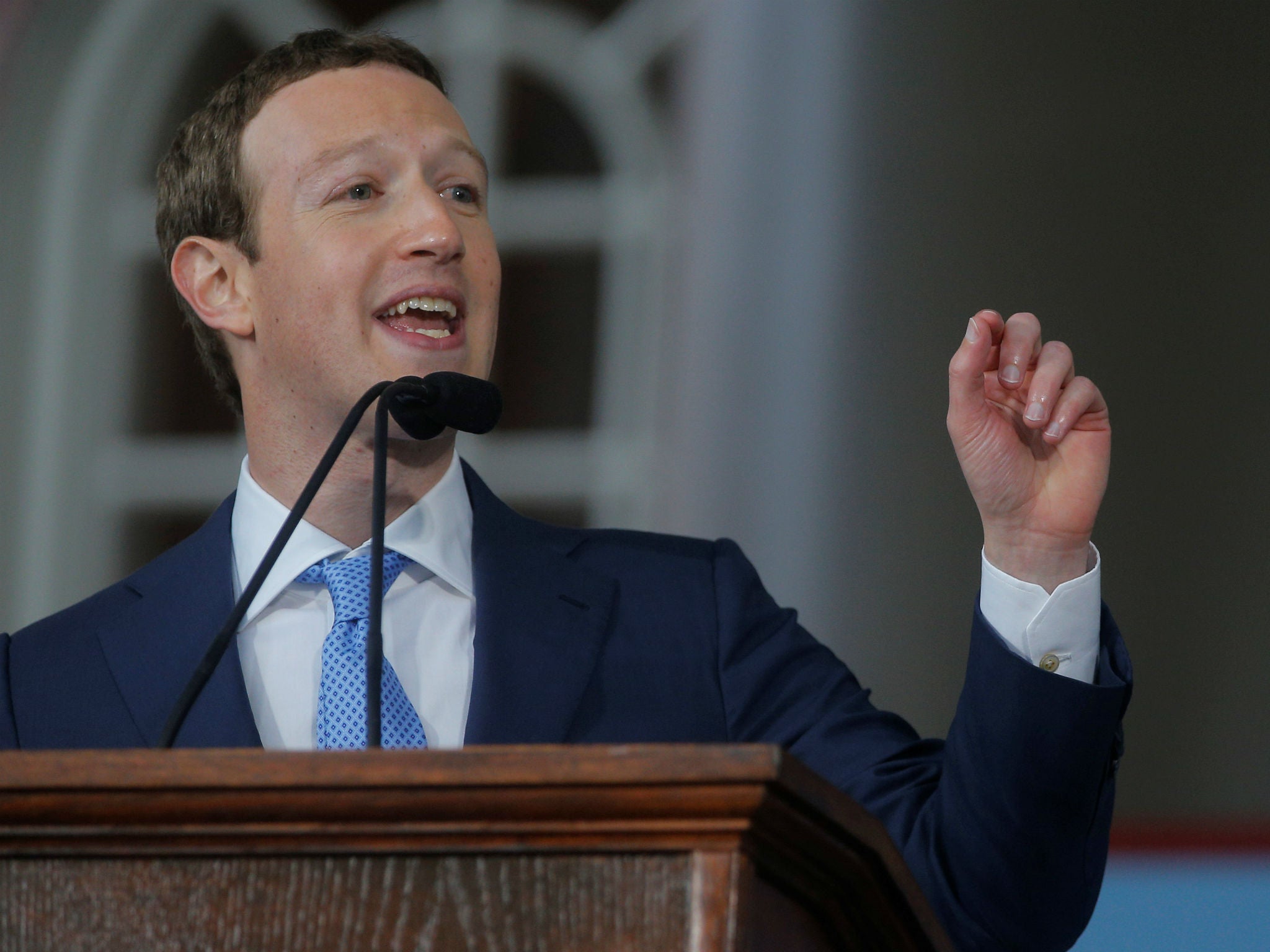Facebook to boost local stories as company battles 'fake news' epidemic
Change is latest in series of moves to alter the information appearing in users' newsfeed

Facebook has announced it will promote local news stories as it continues to alter the information it shows to millions of users following accusations the site has increasingly been used as a mouthpiece for spurious news sources.
“Starting today, we're going to show more stories from news sources in your local town or city,” CEO Mark Zuckerberg said in a Facebook post, adding that the shift would help to “build community” and ensure “the time we spend on Facebook is valuable”.
Mr Zuckerberg said the change would help “show more high quality, trusted news”, fitting into a larger push to overhaul what appears in users' newsfeeds. A central information hub and distributor with billions of monthly users, Facebook has been grappling with questions about how its dominant position affects where people get their news – questions that have grown sharper amid revelations that Russian-linked actors used the site to project influence and spread falsehoods.
“Research suggests that reading local news is directly correlated with civic engagement. People who know what's happening around them are more likely to get involved and help make a difference,” Mr Zuckerberg wrote.
Facebook will initially roll the change out in America and plans to expand it to other countries later this year, Mr Zuckerberg wrote.
Local news outlets have suffered as the newspaper industry struggles with spiralling revenue, declining subscriptions and deep layoffs. An assist from Facebook could bring them more readers, though the method for converting additional clicks into a commensurate rise in profits has largely eluded the industry.
Under pressure over its role in facilitating the spread of Russian-linked propaganda and specious “fake news” during the 2016 election cycle, Facebook has announced a series of high-profile changes intended to alter the type of content users see as they scroll through the site.
The company said earlier this month that it would begin prioritising content from friends and family over posts from news outlets. It also announced plans to let users rank the credibility and trustworthiness of news sources. Last year the site launched tools to downplay fake news and clickbait articles.
Those shifts have come as a number of executives acknowledge the site's potential for societal harm, with Mr Zuckerberg penning a contrite New Year's post saying the site falls short in “preventing misuse of our tools” and the company's civic engagement manager saying he could not guarantee Facebook had an overall positive effect on democracy.
“We recognize that the same tools that give people more voice can sometimes be used, by anyone, to spread hoaxes and misinformation,” Samidh Chakrabarti wrote earlier this month.
Facebook's efforts to recalibrate its role as a media purveyor have met scepticism from some quarters of the journalism industry. Media mogul Rupert Murdoch suggested that Facebook begin paying fees to trusted news sources, echoing criticisms that Facebook has undercut the news outlets whose content it blasts out to users.
“The publishers are obviously enhancing the value and integrity of Facebook through their news and content but are not being adequately rewarded for those services,” Mr Murdoch said.
Join our commenting forum
Join thought-provoking conversations, follow other Independent readers and see their replies
Comments